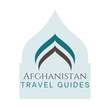Can I visit Kabul? Travel to Kabul, Afghanistan in 2025
Asking yourself 'Can I visit Kabul, Afghanistan in 2025? Learn about travel safety, visas, accommodation, and top attractions. Discover the best hotels in Kabul city, Afghan dress codes, and travel tips for your Afghan adventure.
Can I Visit Kabul?
Kabul, the capital of Afghanistan, has long been a crossroads of culture and history. Despite its turbulent past, adventurous travellers are still asking, Can I visit Kabul?
The answer is yes - with a little extra planning and awareness of culture and current conditions, Kabul and Afghanistan are amazing destinations. This comprehensive guide will cover everything you need to know about travelling to Kabul in 2025, from safety concerns to visas and tourist attractions.
Travel to Kabul, Afghanistan in 2025
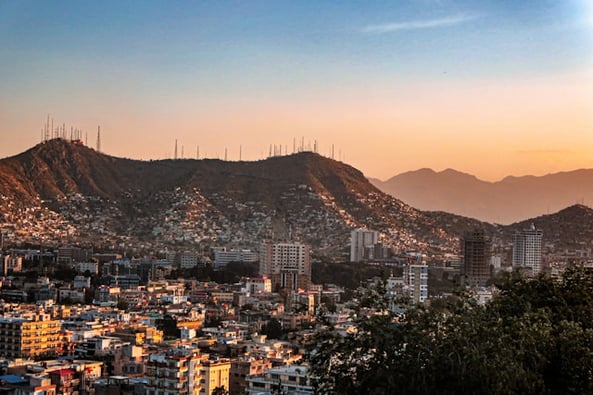

Is Kabul Safe for Tourists?
Unsurprisingly, safety is often the primary concern for anyone considering a trip to Kabul or Afghanistan. It seems like the only time Kabul or Afghanistan makes it to the news, it’s because of violence or oppression, but this doesn’t accurately reflect the situation on the ground.
The security situation in Kabul (and in all of Afghanistan) has significantly improved in the last three years and is now safer than it has been in decades. Thousands of travellers have been to Kabul and Afghanistan in the last 3 years and routinely report feeling safe.
However, whenever you travel anywhere it’s important to take responsibility for your own safety, and use basic common sense and safety precautions. Petty theft and street crime are much reduced, but still possible and there’s still widespread poverty in Afghanistan. You’ll need to secure your valuables carefully and use discretion when using and storing expensive electronics or equipment. It’s wise to keep a low profile in Afghanistan, which means dressing like a local, not speaking loudly in English or other foreign languages in public, and not sharing your location in real time on social media.
Attacks against the government are much less common than in the past but can still happen. Government ministries have been a target for suicide bombers in recent years. Sites that attract tourists and Shia are also potential targets.
Whilst travellers from many many countries, including Western countries, such as the USA, Canada the EU, and the UK have visited Afghanistan without a problem in recent years, those with sensitive backgrounds should be aware of the risk. For more on Safety Precautions and Considerations see our post on Can I Visit Afghanistan in 2025?
Travellers should stay updated with the latest travel advisories from their home country and consider joining Facebook or WhatsApp groups that share current safety and road conditions for travellers. You can also consider hiring a local guide, they have up to date knowledge on security issues and are able to give guidance and insight into travelling in Afghanistan.
Some areas of Kabul are closed to pedestrians or those without a need. Government checkpoints are common throughout the city and you will need to produce your passport, visa and permit when requested at checkpoints.
Afghanistan is a conservative Muslim country. Afghans are proud of their culture, religion and country, even if they have criticisms of aspects of it. As a foreigner you should not criticise Islam or Afghan customs or culture to avoid offending people.
While all travellers we’ve heard from have reported generally positive experiences, it is essential to take common sense precautions, avoid unnecessary risks, and respect local customs. For more travel culture and safety tips, check out our Afghanistan Travel Tips post.
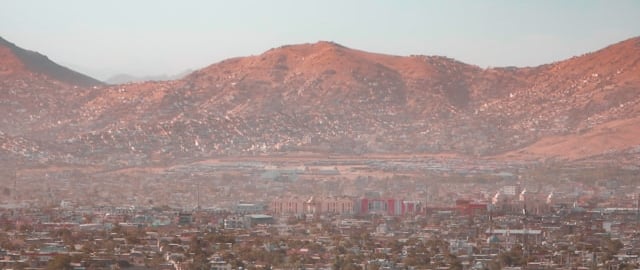

Is Afghanistan Safe for Women?
Women, including solo women, will generally be safe travelling in Afghanistan. People may be curious and surprised (and occasionally disapproving) to see a woman travelling solo, but if you respect the conservative nature of Afghan society you’re unlikely to face any significant issues.
Respecting local cultural norms means dressing modestly, and acting appropriately. Some things that foreign women may find disrespectful are culturally appropriate and reflections of Islamic etiquette. This includes things such as not sitting next to, touching or holding eye contact with unrelated people of the opposite sex.
If you’re a woman travelling with a man, you can expect other men to mostly direct themselves to him. He’ll be expected to arrange things with other men. Men won’t usually ignore direct questions or enquiries from women but they also won’t usually make small talk the way they would with a man.
The flip side of this sex segregation in social life is that as a woman you have the chance to strike up conversations and friendships with women in Afghanistan in a way that foreign men can not.
Afghanistan Female Dress Code
Women should dress conservatively when visiting Afghanistan. For women this means wearing a headscarf (hijab) and loose-fitting clothing that covers the arms and legs. We recommend a full length abaya dress and headscarf that covers all your hair. Although you’ll see women with hair exposed under their scarf, if you’re looking to blend in and keep a low profile we suggest a headscarf with an underscarf that covers all your hair.
In more conservative areas, wearing a burqa or niqab or face mask may get you less stares and make you feel more comfortable.
The Afghan dress code applies whenever you’re in Afghanistan, even if you’re only opening your hotel room door.
For more on what to wear and what to expect as a woman travelling in Afghanistan, explore our Afghan travel preparation ebook guide, Afghan Compass.
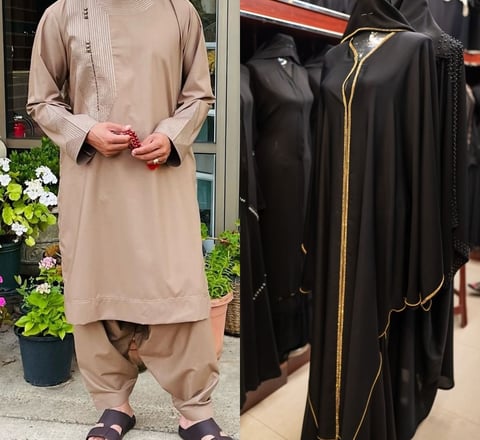

Afghanistan is generally safe, including for men, even those from countries that have historically had conflicts with Afghanistan. The possible exception is if you have current or historical connections with sensitive industries, such as military, security, missionaries or related industries. For more on this see our post on Can I Visit Afghanistan?
Afghans’ conservative culture means men also need to be prepared to dress modestly and be aware of different cultural norms. Unrelated men and women do not socialise in Afghanistan and as a man you should never try to strike up a conversation, sit next to or touch an unrelated woman.
If you’re a man travelling with a woman, other men will expect you to take on the role of managing interactions with other men, for example when checking in to hotels, negotiating for transport or in government offices.
Is Afghanistan Safe for Men?
Afghanistan Male Dress Code
Men should dress conservatively when visiting Afghanistan. We recommend men wear traditional Afghan attire (perahan tunban or shalwar qameez) or loose long-sleeved shirts and long trousers. Shorts and sleeveless tops are completely inappropriate. Dressing modestly helps travellers blend in and avoid unwanted attention. Male travellers have been detained for dressing inappropriately in Afghanistan.
You may also want to grow a beard, especially if you’ll be travelling in rural or more conservative areas. Clean-shaven faces are uncommon in cities and very unusual in rural and more conservative areas.
The Afghan dress code applies whenever you’re in Afghanistan, even if you’re only opening your hotel room door.
For more on what to wear and what to expect travelling in Afghanistan, explore our Afghan travel preparation ebook guide, Afghan Compass.
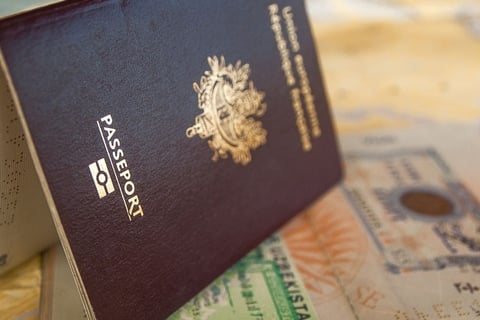

To visit Kabul, all nationalities need a tourist visa. Visas need to be arranged at an Afghan Embassy and cost between $80 and $150 USD. Tourist Visas are valid for 3 months from the date of issue. On entry you get 30 days in Afghanistan. It takes anywhere from 30 minutes to 2 weeks to get the visa. The nearest place to Kabul to get a visa is Peshawar, Pakistan, but the embassy in Dubai is a good option as well, as there are regular flights from Dubai. The only place you can get a Visa on Arrival is at the Shir Khan Border with Tajikistan.
For an in-depth guide on getting a visa, including where to find an Afghan Embassy, processing fees and times, check out our post on How to Get a Visa to Visit Afghanistan.
Kabul Afghanistan Tourist Visas
To visit Kabul (and any other province in Afghanistan), a travel permit from the government is required. Permits are free and can be arranged at the Ministry of Information and Culture in Kabul. You’ll need to visit the office with your passport and a list of provinces you hope to visit in Afghanistan. Even if you’re not leaving Kabul, you will still need this permit. It usually takes 30 minutes to 1 hour to get the permit. If you have limited time in Afghanistan you can pay a travel guide to get this for you before you arrive. If you’re travelling to Kabul with a tour guide or group they will arrange this for you.
For more info on getting your travel permit, check out our post on How to Get a Visa for Afghanistan or our Afghan Compass ebook.
Kabul Travel Permit
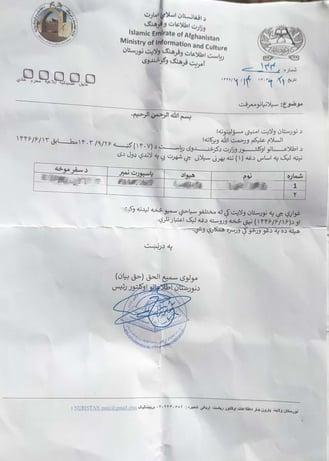

Afghanistan Travel Permit for foreign travellers
Cheap Flights to Kabul Afghanistan
International flights to Kabul arrive every day from hubs such as Dubai, Sharjah, Doha, Delhi, Jeddah, Istanbul, Moscow and Urumqi and Islamabad. To find the best deals, book in advance and check budget airlines, especially KamAir, Ariana Afghan Airlines and AirArabia. These companies don’t have the best websites, so you may want to check with a travel agent. Other airlines flying to Kabul include Turkish Airlines, Qatar Airways, Fly Dubai, Emirates, Pakistan International and Air India.
Domestic flights within Kabul are relatively cheap. These are best booked in advance at travel agents in Afghanistan.
For more on: Travel Expenses in Afghanistan
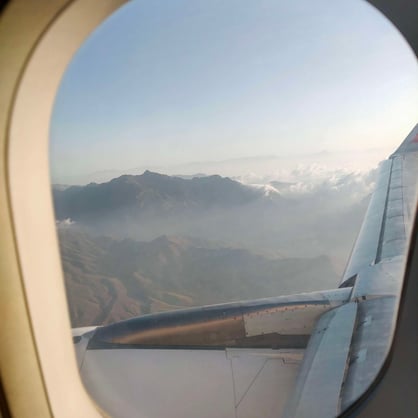

The view flying into Kabul: the incredible Hindu Kush from the air.
Overland to Kabul Afghanistan
Travelling to Kabul overland is absolutely possible but more challenging than flying in. The nearest border is the Torkham Border with Pakistan. Torkham border is a 5-6 hour drive from Kabul and share taxis are available from the border to Jalalabad and Kabul.
This is an infamously busy/chaotic border crossing, and pickpocketing is more likely here than most other places in Afghanistan. Secure any valuables well, and keep a close eye on your baggage.
This border can also close at short notice. It’s rarely closed for more than a few days, but can be closed for longer when political tensions are high between Pakistan and Afghanistan.
For more on border crossings check out our Afghan Compass ebook. For more on transport to, from and in Kabul check out our Discover Kabul City Guide.
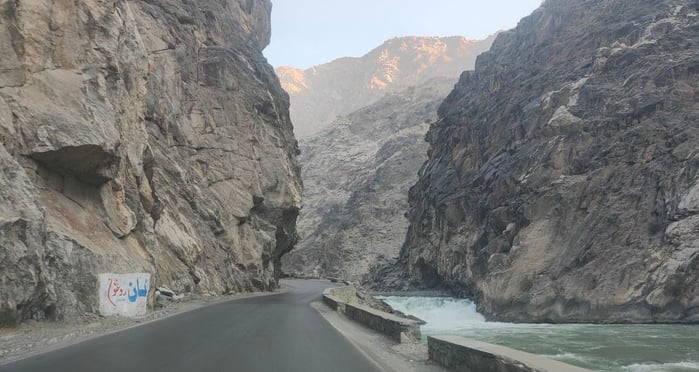

On the road to Kabul from Jalalabad
Hotels in Kabul Afghanistan
Accommodation options in Kabul range from budget guesthouses to high-end hotels. Booking from outside the country is difficult as US sanctions prevent most Afghan businesses from taking payment over the internet. The most common way to book is by WhatsApp but some guesthouses and hotels also have social media and websites. Just turning up is also an option.
Budget Hotels & Guesthouses in Kabul
Expect to pay 800-1500 AF/night, with either shared or private bathrooms, usually with wifi. Expect basic rooms with average cleanliness. These are all centrally located in Shahr-e-Naw.
Kabul Guesthouse
Shahr Guestouse
Shamshad Guesthouse
Tolo Herat Guesthouse
Midrange Hotels in Kabul
Expect to pay 1500-3500 AF/night, usually includes private bathroom, wifi and breakfast. Expect comfortable but not super clean, with reasonable services.
Afghania Guesthouse - Shahr-e Naw
Khyber Hotel - Shahr-e Naw
Torabaz Khan Guesthouse - A little out of the centre in Qala-e-Fathullah
Kabul City Walk Hotel - Shahr-e Naw
Luxury Hotels in Kabul
Expect to pay 6000 AF+ night, usually includes private bathrooms, room service, wifi and 24/7 electricity. Expect the best customer service available in Kabul even though the most expensive may not come up to the standard you’re used to if you’re accustomed 5-star hotels.
Kabul Star Hotel - Shahr-e Naw
Kabul Serena Hotel - Shahr-e Naw
Intercontinental Kabul - on a hill outside of the central city area
For more accommodation options, including contact details and locations check out our Kabul City Guide.
For more on travel expenses in Afghanistan see our post.
Restaurants in Kabul
There are plenty of restaurants in Kabul to suit all budgets. Many upmarket restaurants have menus in English. Specific diets such as vegetarians or gluten-free may find eating in Afghanistan more of a challenge. The food in Afghanistan is usually fresh, but is very meat and bread heavy. Some favourite Kabul restaurants include:
Ziyafat - the Palace of Taste lives up to it's name.
Shaam Restaurant - a traditional Afghan restaurant and a museum
Bukhara Restaurant - Afghan and international options in an upmarket restaurant
Slice Cafe - the place for coffee and cakes
Arab Mandi - Arabic and Afghan food
Prime Steakhouse - Steaks, burgers and all the meat. Not for vegetarians.
Turkish Family Cafe - Turkish food in a clean and green restaurant
The Cafeteria - another popular cafe/restaurant with Afghan and Western food
Kabul Tourist Attractions
Kabul is a bustling city, with plenty to see and do. Some favourite tourist spots in Kabul include:
Babur’s Gardens – A beautiful and historic green space, originally laid out by the Moghul Emporer Babur.
National Museum of Afghanistan – Houses a collection of historical artefacts, from the Bronze Age, through the Greek, Kushan and Islamic periods of Afghan history.
Wazir Akhbar Khan Hill – Home to the giant shahada flag and a small Al Aqsa mosque, with a panoramic view across Kabul city.
Chicken Street – A famous street in Kabul focused on Afghan antiques and handicrafts.
Kabul Bird Market – In the heart of the historic bazaar area, Kabul Bird market is a bustling traditional bazaar.
Shewaki Stupa – An 1800 year old, recently restored stupa. A glimpse into Afghanistan's ancient Buddhist past.
Keep scrolling for pictures of these sites and other pictures of Kabul. For more Kabul experiences, including costs and locations check out our Kabul City Guide.
Pictures of Kabul Afghanistan
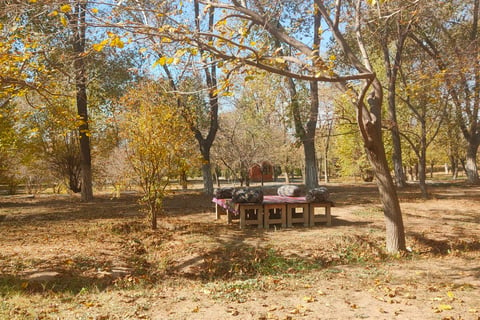

Babur Gardens in Autumn
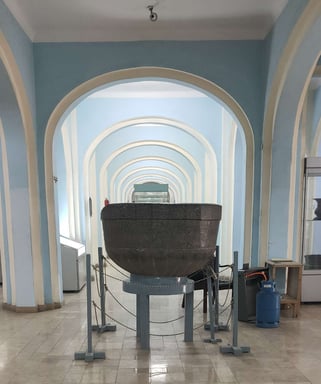

National Museum of Afghanistan
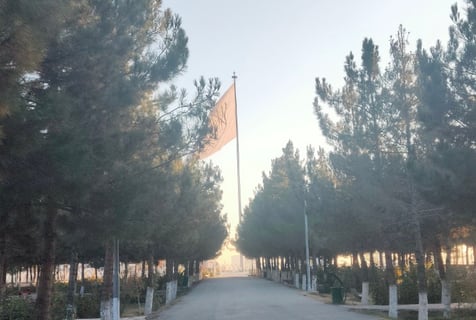

Wazir Akbar Khan Hill
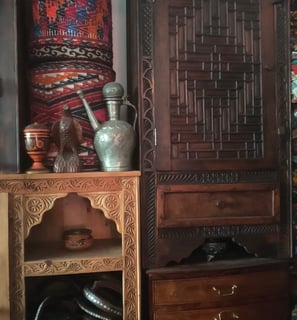

Istalif Gallery, in a street off Chicken Street in Kabul


Kabul Bird Market
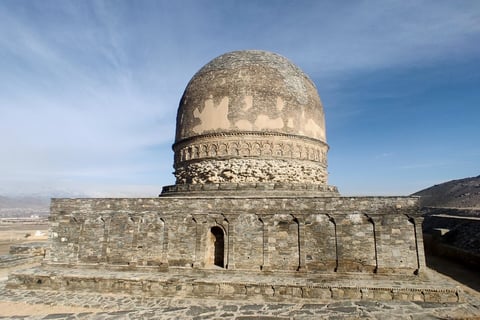

Traditional Dresses for sale in Kabul
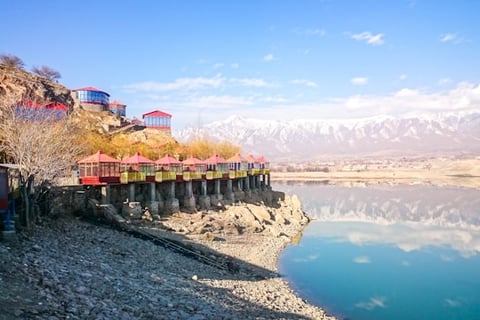

Qargha Lake, on the outskirts of Kabul
Shewaki Stupa
Pottery for sale in Istalif
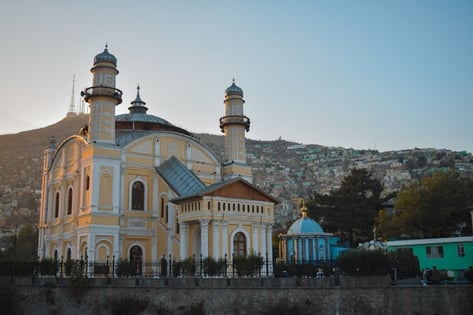

Shah do Shamshera Mosque, Kabul


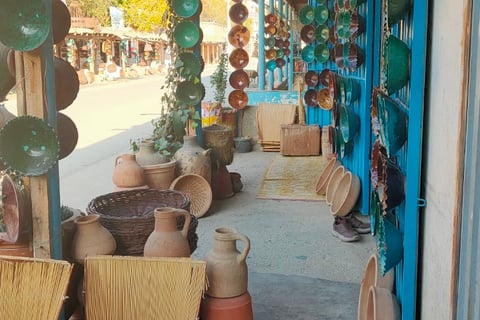

Tips for Travelling to Kabul in 2025
Do your research. Travelling in Afghanistan requires visas and permits. Travellers have been detained for not having these.
Plan your visa application early. Afghan Embassies are limited and you may need to travel to get a visa.
Respect Afghan customs and dress codes. This shows respect for locals and helps you keep a low profile.
Get our PDF guides. Obviously we’re biased, but our guides are the only interactive up-to-date travel guides to Afghanistan. They have everything you need to know for your Afghan adventure, in a handy downloadble pdf with interactive location and contact links.
For detailed preparation for your Afghan adventure, explore our ebooks:
The Complete Guide to Travelling Afghanistan - all our ebooks at 30% off.
Afghan Compass – A comprehensive travel preparation guide to Afghanistan.
Kabul City Guide – Explore Kabul with confidence.
Our Other City Guides – For Ghazni, Kandahar, Bamiyan, Mazar and Herat.
For more free resources on travelling in Afghanistan check out our Afghanistan Travel Blog:
